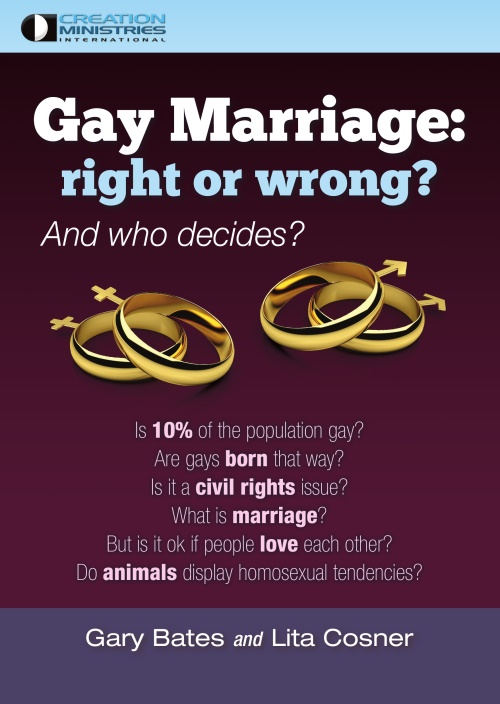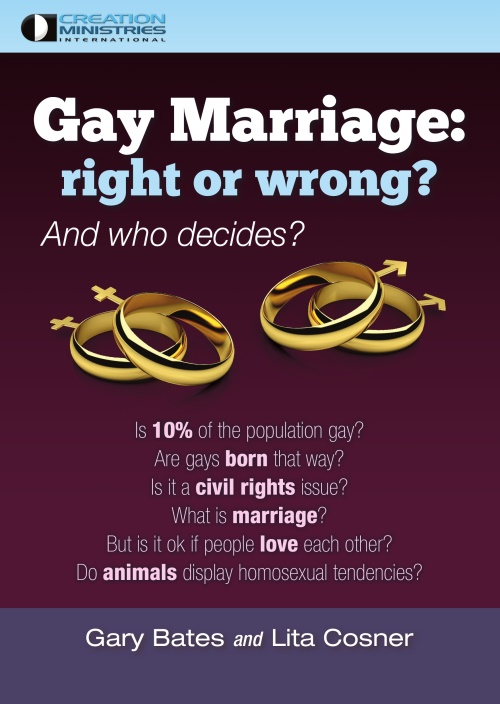Feedback archive → Feedback 2016
Why does God forbid premarital sex?

God only permits sex inside marriage. But why? Western culture largely doesn’t see a problem with premarital sex anymore. And if the couple consent, what’s the problem? J.B. from the U.S. writes:
I have been asked something that had me quite stumped. Someone was questioning why God does not allow people to have sex outside of marriage, claiming there is no good reason. I am not talking about homosexuality or anything like that, but like a man and woman having sex when they are not married. I saw one article that briefly touches around the subject, but my question is how should I answer this to an atheist?
CMI’s Shaun Doyle responds:
God forbids sex outside of marriage because outside of marriage there’s no public agreement in place stipulating that each party of the sexual relationship must care for one another and any children that might come from the sexual union. Sexual desire is an incredibly potent force, and sexual activity has massive implications—procreation being the most obvious (Genesis 1:28), but it also binds a man and woman together in a way that nothing else can (Genesis 2:24–25)—the two texts Jesus himself explained marriage from: Christ the Creationist. By forbidding sex outside of marriage (1 Corinthians 7:2) God is saying that we must publically acknowledge that we have a duty of care to our sexual partner before we get to have sex. Think about it; marriage constitutes a public agreement to care for any potential children from a sexual union, so it provides a level of accountability to parents for looking after their own children. Marriage thus provides a first line of defense against child abuse and neglect (Raising godly children). If sex is OK outside of marriage, nor do we have a publically acknowledged duty of care to the person we have sex with. As such, marriage is a first line of defense against sexual abuse.
Of course, we all know that child abuse and sexual abuse can occur within marriages. But this doesn’t happen because marriage itself is faulty; it happens because humans are slaves to sin (Ephesians 2:1–3). Is the idea of a car stupid just because my car is a lemon? Of course not! But if sex is OK outside of marriage, then sex and children happen outside of contexts where people have voluntarily acknowledged their duty of care to their sexual partner and their children. Does circumventing that public accountability bode well for lessening sexual abuse and child abuse? Of course not! And so it’s no surprise to learn that child abuse and sexual abuse (of both children and adults) are proportionately more common outside of marriage than within it.
But, people in our society today think sex outside of marriage is OK because we have decoupled sex from a duty of care for our sexual partner. Sex is now a game people play, not an expression of love people share. But if sex is a game people play, then why shouldn’t they be able to make money from playing it? After all, baseball, football, and basketball players make obscene amounts of money just for playing a game, and sex is in many ways more entertaining than any of those, so why can’t people make money from ‘playing’ sex? And if sex is a game, why can’t we change the rules as we feel like, and legitimize all sorts of sexual expressions? And if sex is a game, what’s the point of marriage? Why not redefine marriage to reflect socially acceptable sexual proclivities? And what do we see in the Western world? Homosexuality is now just a ‘sexual preference’, prostitution is legal in many places, and same-sex marriage is sweeping the Western world.
But notice in all this how children, as products of sexual unions, have been forgotten. Why? Western culture has (largely) managed to decouple sex from procreation. The original design of sex was ingenious—God made the most pleasurable human experience the means by which new life is generated; it puts an enormous responsibility on those engaging in sexual activity. But of course, the general availability of birth control has largely taken the fear of pregnancy away, so it makes it easy to treat sex like a game.
But even without the threat of pregnancy, promiscuity still has a major consequence—STDs (see Does it matter? for more information). STDs are clearly more prevalent in promiscuous societies. As such, even STDs are a reason to limit oneself to only one sexual partner at most, since then most STDs wouldn’t have a means of being transmitted. And health risks are included in any acknowledged duty of care to a sexual partner and children, so marriage again provides a means of curtailing STDs by binding a person to one sexual partner.
“But sex can still be an expression of love outside of marriage, right?” No. It can be an expression of infatuation, or romance, but not love in the biblical sense of actively putting another’s needs above oneself. “Oh, but I’m a generous lover!” In bed, maybe, but what about the rest of the day? The duty of care God says sex binds us to is not simply our partner’s sexual needs, but all their needs. Food, clothing, shelter, emotional well-being, spiritual well-being—all of it. When we view sex as an expression of that sort of love, then it’s plain that anything less than sex inside marriage cheapens the value of sex. If we are not willing to be so bound to someone that all their needs are largely dependent on us, then we shouldn’t be having sex. And if we are so willing, then we should make the public profession to such willingness (with our partner, of course; it takes two to marry!) before having sex so that everyone else can hold us accountable. For more information, please see Family/Marriage questions and answers.



Readers’ comments
Comments are automatically closed 14 days after publication.